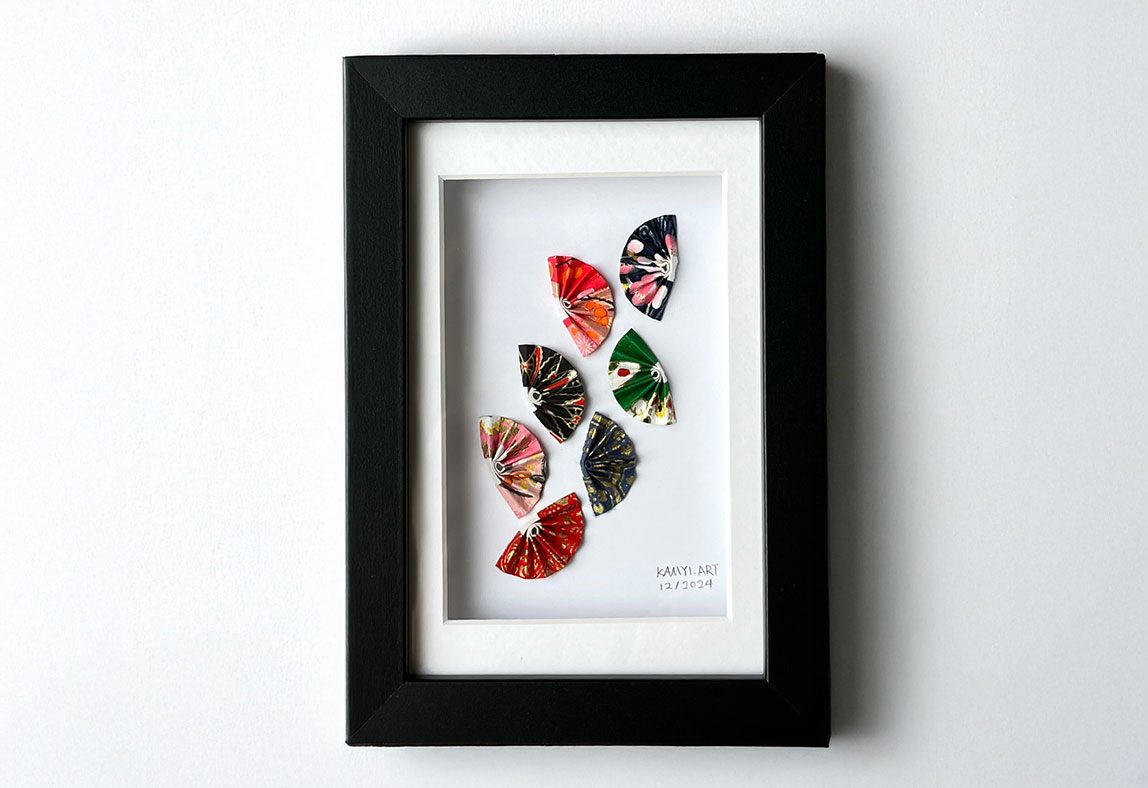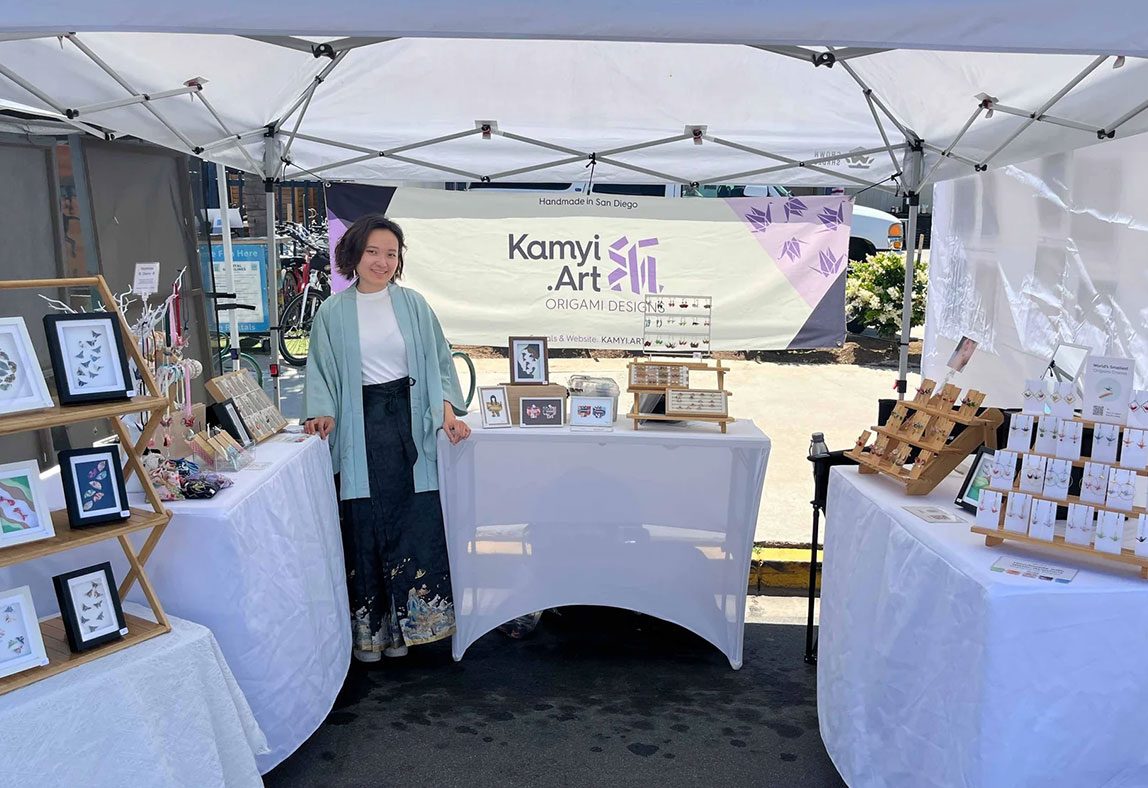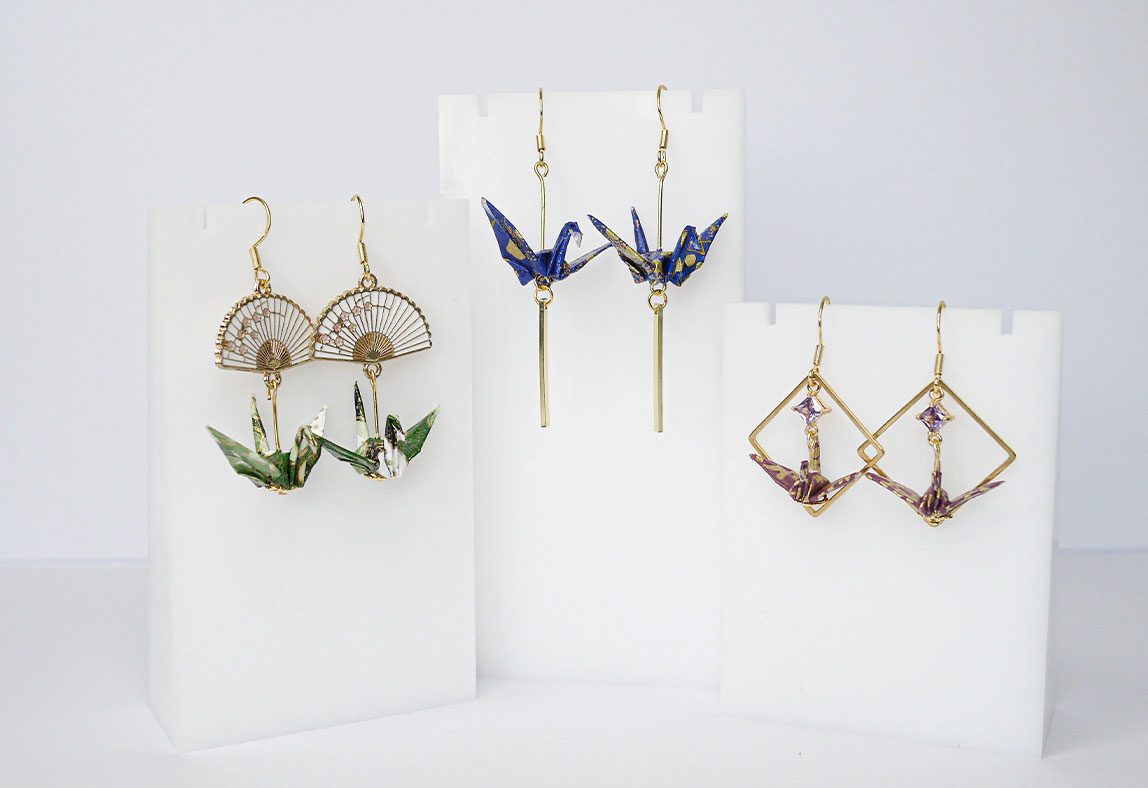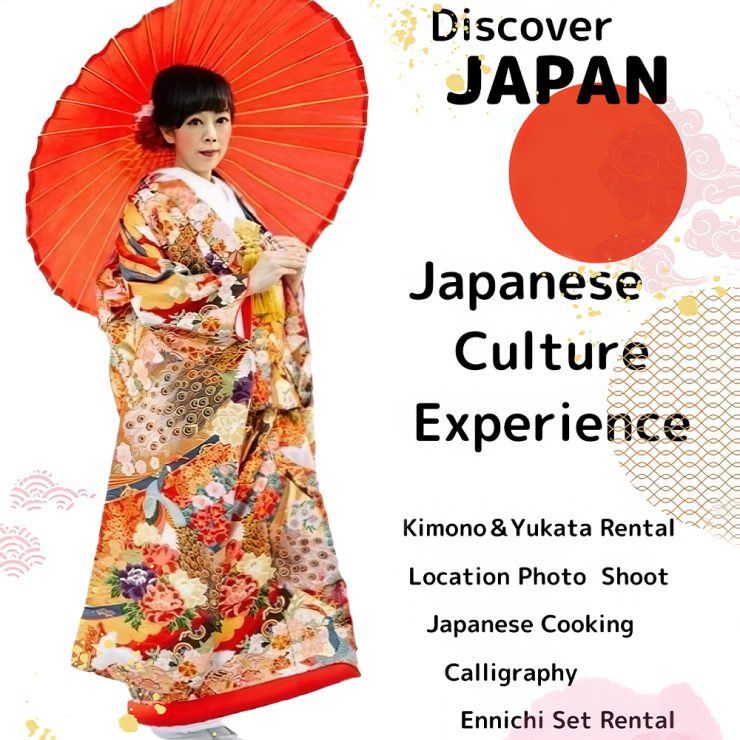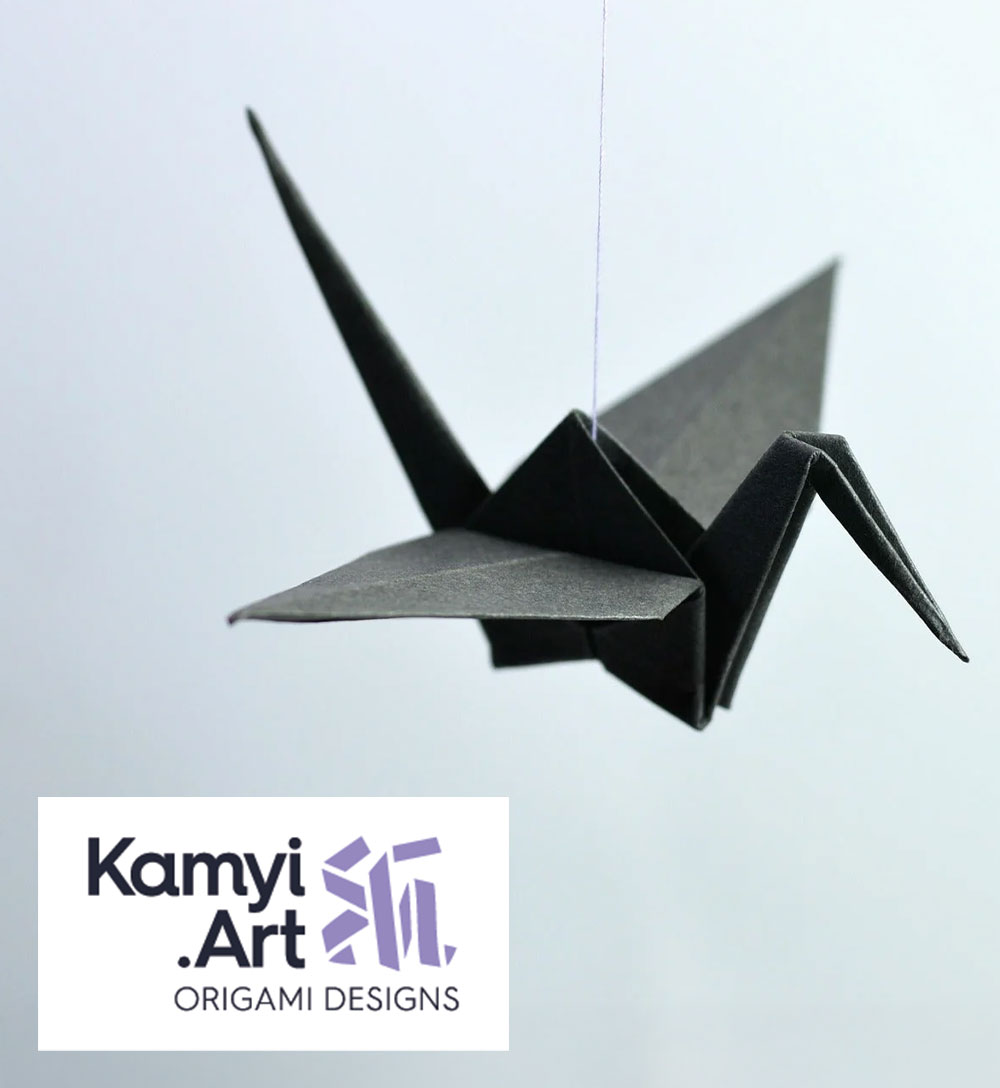
Kamyi.Art
Founded by designer Julie, Kamyi.Art blends traditional Japanese washi paper with modern fashion. Inspired by childhood origami cranes and a transformative study-abroad experience in Tokyo, Julie began crafting origami earrings in 2020.
Starting with a small table at Balboa Park in 2021, Kamyi.Art has grown into a full artisan brand with an online shop and features at 80+ juried craft fairs across California, including the Cherry Blossom Festival, 626 Night Market, and Coronado Art & Wine Festival.
Each piece is handmade in San Diego with handpicked Kyoto washi, glazed for durability, and set with hypoallergenic metals. Kamyi.Art continues to celebrate East Asian culture, bringing creativity, peace, and good fortune to every design.
Origami
O
rigami, from the Japanese words ori (“to fold”) and kami (“paper”), is the traditional art of paper folding. Practiced in Japan for centuries, it transforms a simple square sheet of paper into intricate forms—animals, flowers, geometric shapes—without the use of scissors or glue. The essence of origami lies in its simplicity: through precise folds, flat paper takes on three-dimensional life.
Early forms of paper folding in Japan date back to the 17th century, when folded shapes were used in religious ceremonies and as decorative tokens. By the Edo period (1603–1868), origami had become a popular pastime, with models such as the crane (orizuru) symbolizing peace, longevity, and good fortune. The crane remains one of the most iconic designs, with the practice of folding one thousand cranes (senbazuru) carrying special significance as a prayer for health and peace.
Modern origami expanded in the 20th century through the work of innovators such as Akira Yoshizawa, who developed new techniques and established a system of diagram notation that made origami accessible worldwide. Today, origami bridges art, mathematics, and science: its principles are applied in architecture, engineering, robotics, and even space exploration.
Whether practiced as a meditative art, a cultural tradition, or a scientific tool, origami continues to embody the Japanese ideals of elegance, creativity, and transformation through simplicity.

